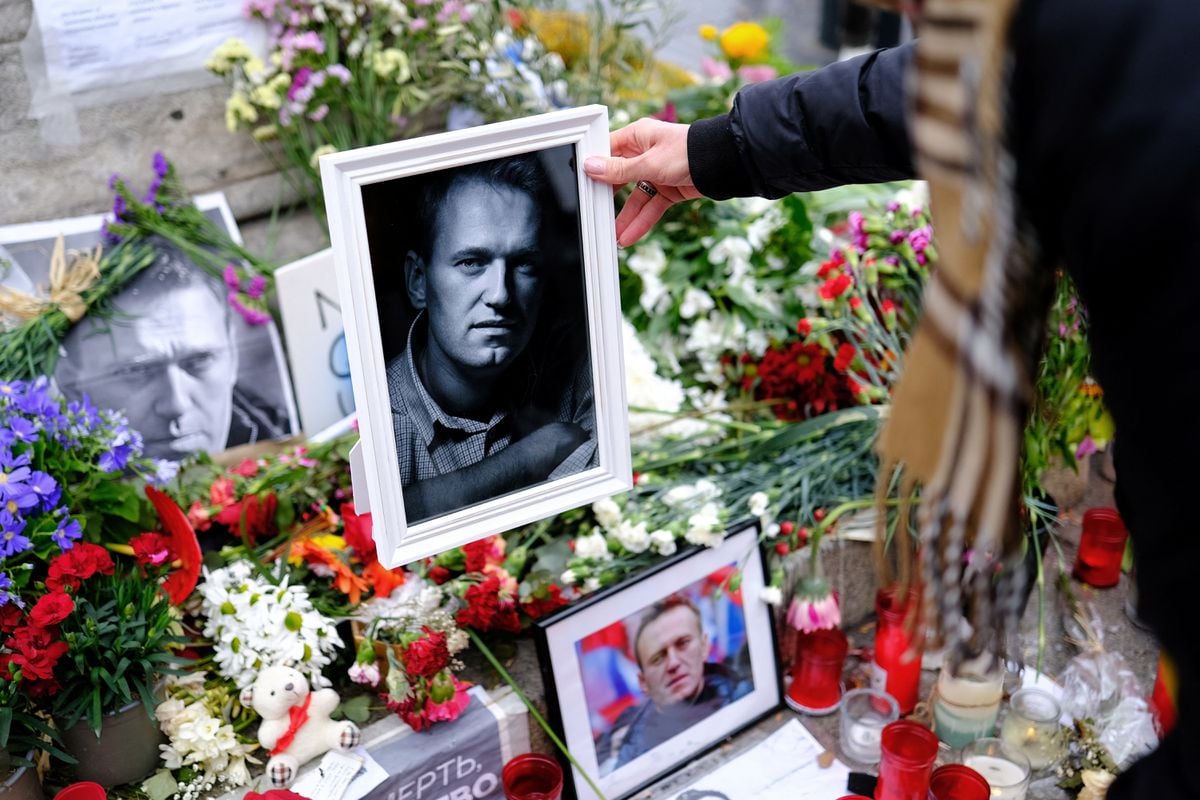The Franco-German axis as the driving force behind retaliation against Russia for the Navalni case.
Paris and Berlin will propose to the European Union to adopt sanctions against Russia, whom it accuses of being behind the poisoning of Alexei Navalni with the nerve agent Novichok, as reported in a joint statement by both countries.
The Europeans were waiting for a response from Moscow after it became known that the Kremlin opponent had been poisoned with a substance of Russian military manufacture.
“Russia has not provided a credible explanation so far.
In this context, we consider that there is no other plausible explanation than Russian involvement and responsibility ”, German Foreign Ministers Heiko Maas and French Minister Jean Yves Le Drian assure in the joint note.
"There has been an assassination attempt on Russian soil, against a Russian opponent, using a nerve agent developed by Russia," they say.
"Drawing the necessary conclusions from these events, France and Germany will share with their European partners proposals for additional sanctions," they add.
The new punishment would be in addition to the series of sanctions imposed by the EU against Moscow since 2014, following the war in Ukraine and the Russian annexation of the Crimean peninsula.
Attempts at reconciliation with the Vladimir Putin regime, spearheaded until the poisoning of Navalni by French President Emmanuel Macron, have borne no fruit in the past six years and seem increasingly difficult to sustain.
The new shock may also complicate the difficult balance maintained by German Chancellor Angela Merkel, who despite the unilateral occupation of Crimea has maintained Germany's agreement with Moscow to build a new gas pipeline across the Baltic (the so-called Nordstream II).
Berlin and Paris now suggest that the sanctions be directed against individuals "responsible for the crime and violation of international law by their role, as well as the entity involved in the Novichok program."
Moscow denies any involvement in the poisoning that has led to a considerable deterioration in relations between Russia, Germany and the European Union.
Paris and Berlin claim that the attempt to silence the Russian opponent constitutes a violation of the Chemical Weapons Convention.
A German military laboratory and two independent centers in France and Sweden have confirmed that Navalni was poisoned with a substance from the Novichok family.
It is the same nerve agent used in 2018 to try to liquidate former Russian spy Sergei Skripal in the UK.
The German Government, however, had announced that before adopting any retaliation it would wait for confirmation from the Organization for the Prohibition of Chemical Weapons (OPCW), which arrived this Tuesday and which also claimed to have found traces of the poison.
With the endorsement of the OPCW on the table, Berlin and Paris advocate opening a new avenue of sanctions against Moscow, with the punishment for Crimea still in force.
Last week these reprisals were extended, with two Russian citizens and four Russian companies added to a list of sanctions (prohibition of entry into the EU and freezing of their assets in Community territory) that already includes 177 people and 48 companies.
The EU has also approved economic penalties for various Russian economic sectors (energy, defense, finance and dual-use goods), extended every six months and valid until at least January next year.
Possible sanctions should be approved unanimously within the Council of the EU, where the 27 governments of the Union sit.
The Franco-German proposal is expected to be presented next Monday, during the monthly meeting of the EU foreign ministers.
The appointment coincides with the German presidency of the Union during this semester.
The approval of the new punishment, however, may also cause internal tensions within the EU.
On the one hand, countries like Italy or Hungary tend to resist acting against Russia.
And on the other, Poland or the Baltic countries, totally against the construction of the Nordstream II gas pipeline, can take advantage of the
Navalni case
to try to definitively abort a project that also has the strong opposition of the United States.
Navalni has been in Berlin since August 22, recovering from the poisoning that nearly cost him his life.
The Russian opponent was transferred to Germany in a medicalized plane two days after suffering a collapse in a plane in flight.
The device made an emergency landing and Navalni was initially admitted to a hospital in Siberia, where they claimed to find no remains of any toxic substance.
The opposition's environment maintained from the first moment that Navalni had been poisoned and managed through a German NGO to transfer the patient.
In Germany, Navalni was admitted to the large La Charité hospital, where he was discharged on September 23 after spending more than a month in the medical center, 24 of them in intensive care.
There he received a visit from the German Chancellor, Angela Merkel.
Since he left the hospital, he has been undergoing rehabilitation treatment in the German capital, where his family accompanies him.

/cloudfront-eu-central-1.images.arcpublishing.com/prisa/43YXJI52DBGGRKBMZ2Q4XR7GRU.jpg)

/cloudfront-eu-central-1.images.arcpublishing.com/prisa/ZNFV524GTFBPBK4ZW4RGHMFR7M.jpg)
/cloudfront-eu-central-1.images.arcpublishing.com/prisa/AGFCBDDJJTOOUXDHZW55LU7HYE.jpg)
/cloudfront-eu-central-1.images.arcpublishing.com/prisa/3F5GZOSQQ4QC7BZOAN6C2LFXRU.jpg)

/cloudfront-eu-central-1.images.arcpublishing.com/prisa/IFHSK2Y33FAPNI3FS3FHOTCTVM.jpeg)







